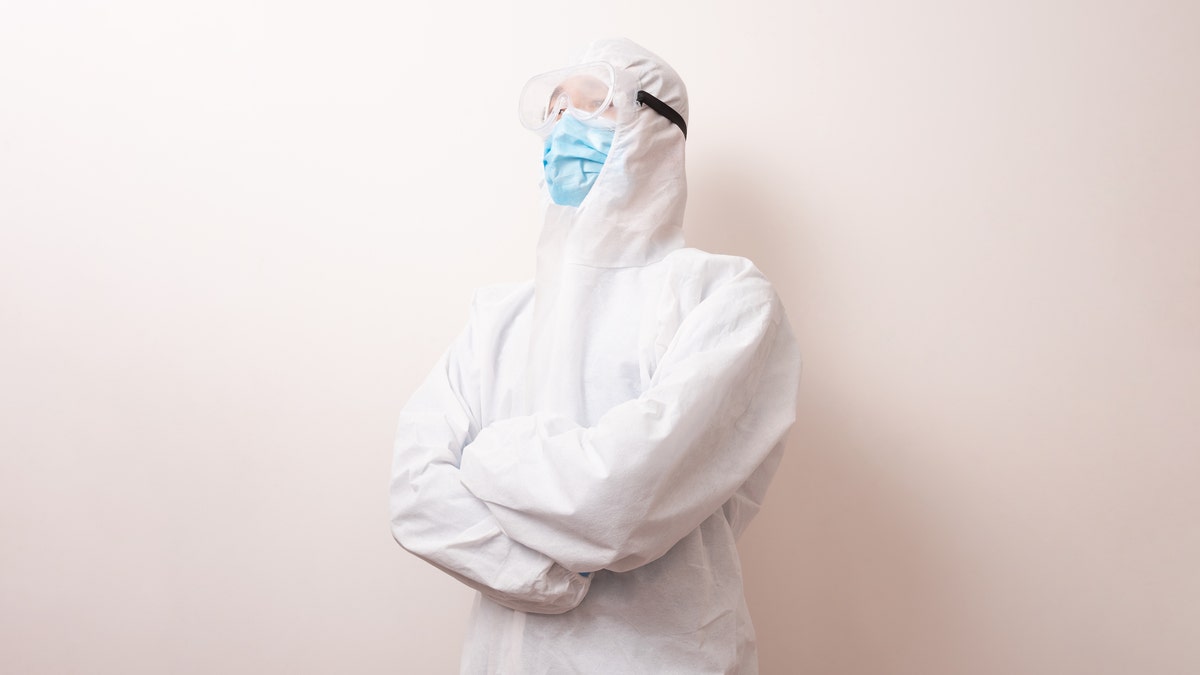COVID breakthrough? Oxford University says its coronavirus vaccine triggers dual immune response
Fox News medical contributor Dr. Marc Siegel joins Tucker Carlson with insight on 'Tucker Carlson Tonight.'
The pandemic has taken a toll on frontline health care workers both physically and mentally, according to multiple studies. But how does this COVID-19 crisis affect the mental health of the physicians and health care professionals who were infected with the novel coronavirus and ultimately became patients themselves?
“I get these sudden flashbacks and feel these pangs of uneasiness, especially if I turn suddenly onto my stomach when laying down. It brings me back to when I was in the hospital and I had to be in a prone position to help me breathe,” one physician recovering from COVID-19, who asked not to be identified, told Fox News.
DOGS ABLE TO SNIFF CORONAVIRUS IN HUMAN SALIVA, GERMAN STUDY FINDS
It has been several months since that doctor was discharged from the hospital, yet he continues to deal with the physical and emotional trauma of being in the hospital when the pandemic first began. The physician said his colleagues feel that same anxiety and often wake up in the middle of the night restless.
Rachel Potter, a licensed social worker at Mount Sinai National Jewish Health Respiratory Insitute in New York City, has been working closely with many healthcare professionals that were infected with the virus after they worked on the frontlines during the onset of the outbreak.
“I think there is a sense of helplessness in being in the role of the patient during this pandemic, especially when we're still figuring out how to treat COVID."
“Health care professionals are used to providing care,” Potter told Fox News, adding it has been especially difficult for many of these professionals to suddenly become incapacitated by the virus.
“I think there is a sense of helplessness in being in the role of the patient during this pandemic, especially when we're still figuring out how to treat COVID," she added.
The physicians, now patients, knew their colleagues didn’t know much about the new virus, and they had seen firsthand how the virus affected some of their own patients. This ultimately left them with a sense of uncertainty and worry regarding their own fates, Potter said.
The physician Fox News spoke with said it was scary to know that his colleagues were fighting a "beast" that was unfamiliar and often unpredictable.
“It was much harder to be a patient being a physician," the doctor said. “I wasn’t quarterbacking my care by any means but I was definitely on the committee, so everyone was consulting me about what they were doing which was gratifying in many ways but also added a lot more stress."

“It was much harder to be a patient being a physician," the doctor said. (iStock)
Besides breathlessness, many COVID-19 survivors experience sleep disruption, fatigue and brain fog, according to a July report in the American Psychological Association.
Potter told Fox News the “brain fog” has many healthcare workers worried about what their future roles will look like when they return to work, as quick decision-making is a vital part of their jobs. She noted that this may lead to further anxiety and depression in many health professionals recovering from coronavirus.
For practitioners who are dealing with post-traumatic stress disorder from their days in the ICU and hospital beds, Potter worries the physicians and nurses will be triggered when they do return to work and see their patients laying in a hospital bed or if the patients show similar symptoms they had when they were very ill.
“It could either be triggering to work with patients or it could give them a better sense of the patient’s experience," Potter said.
PROTECTING AGAINST CORONAVIRUS: IS A FACE MASK OR FACE SHIELD BETTER?
The licensed social worker manages support groups, suggesting this for any health care professional during their recovery from COVID-19.
“The support group provides an opportunity to connect with others who have a shared experience. It allows people to find common humanity," she said, adding that one of the tenets of self-compassion is "to recognize that we are not alone even when we are feeling alone."
"A support group can also be a place for individuals to share helpful resources that are working in their recovery and to learn what has worked for others," Potter added.









































